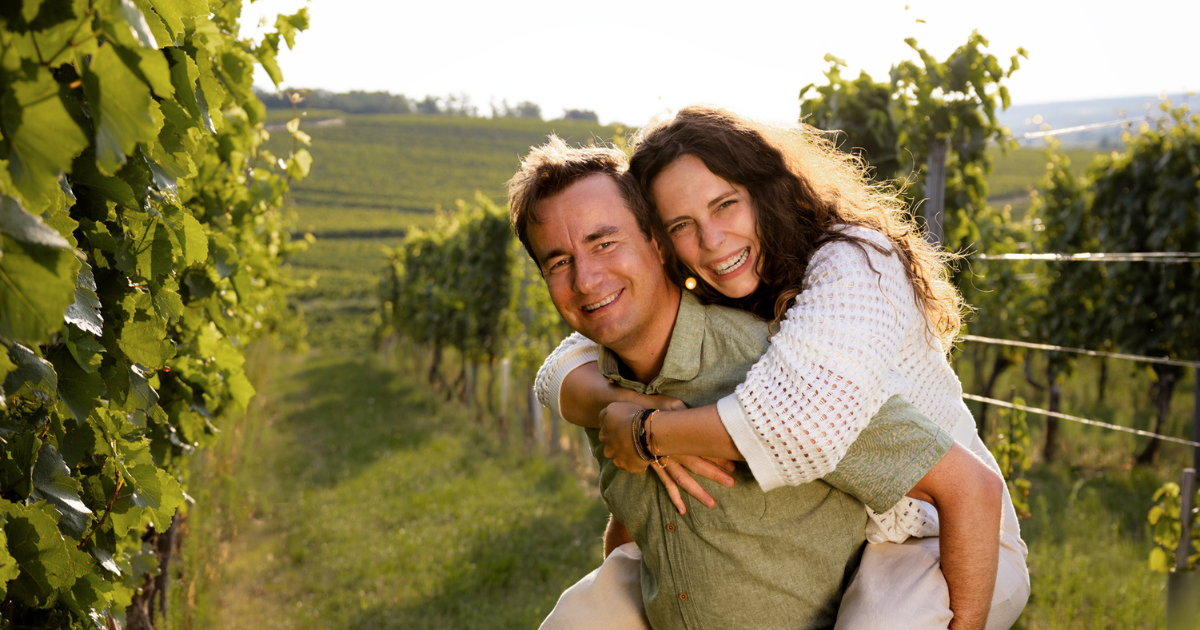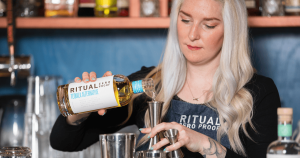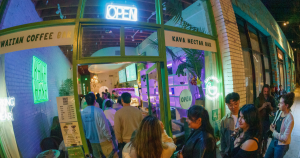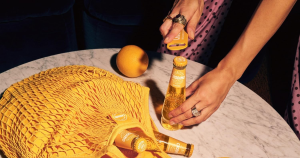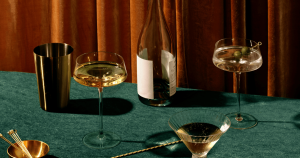Photo Credit: Monika Jungwirth
PARTNER CONTENT: ZERONIMO
It’s incredible what can happen in just one year—how new inventions and bold approaches can transform an entire industry and reshape cultural perspectives. This is especially evident in the alcohol alternatives sector, which has seen remarkable growth. A standout example of this transformation is ZERONIMO, a premium non-alcoholic wine brand from Austria that recently entered the US market. ZERONIMO has revolutionized the non-alc wine industry with a bold approach, ushering in a new era of quality and taste in dealcoholized wine. Given its unique origins, rapid success in Europe, and recent expansion into North America, we took a closer look at what makes ZERONIMO so impactful.
A Family-Owned Boutique Winery Turns Pioneer of Non-Alc Wines
One of the key drivers behind ZERONIMO’s success is its roots in an award-winning, family-owned Austrian winery, Heribert Bayer, known for producing premium wines. Founded over 25 years ago as a father-son operation, the winery is now led by the second generation, Katja and Patrick. The winery, named after the man who introduced groundbreaking winemaking techniques like malolactic fermentation and small-barrel aging, helped shape the quality and reputation of Austrian red wine. Until one year ago, the winery was celebrated solely for its highly-rated red wines, such as the 98-point In Signo Leonis and Herzblut blends, as well as a collection of aged wines dating back to 2002. Then, exactly one year ago, the winery made history by becoming the first to launch a dealcoholized 98-point red wine: the ZERONIMO Leonis Blend. Since then, ZERONIMO has grown exponentially, increasing its dealcoholized wine production fifteen-fold, expanding its vineyard to 100 acres, and achieving half of its sales through non-alc wines. This expansion allowed ZERONIMO to enter new markets across Europe and North America, with Canadian pre-orders now available via Sobr Market.
The Magic Behind the Wines
In 2021, when Katja and Patrick first thought of ZERONIMO, they couldn’t find any non-alc red wines that satisfied their palates or paired well with food. So, they set out to create their own. Unlike many non-alc brands, they began with red wine—a challenging category for dealcoholization. Their decision to dealcoholize their 98-point-rated red was an even bolder move. Working with their best wine, they were determined to make no compromises.
Katja and Patrick adopted an advanced natural aroma recovery method—perfected over two years—which allows the wine to retain its essence without additives or industrial sugar. The result was a wine they could enjoy not only because it was alcohol-free, but also because it tasted excellent, paired beautifully with food, and presented an elegant, fresh take on wine. Katja and Patrick’s commitment to creating a dry, multi-layered red that retained its terroir, grape variety, and vintage nuances instantly set ZERONIMO apart. Their focus on high quality and excellence has resonated with the sober community and “flexi-drinkers” alike.
Expansion and New Milestones
ZERONIMO distinguishes itself by offering the same wine with and without alcohol, including a Fusion bundle that allows consumers to blend the two and customize their desired alcohol level. Their unique approach has drawn praise from non-alcoholic beverage experts across North America and Europe, with notable figures like Laura Silverman, Derek Brown, Joshua James (Ocean Beach Café), and Sarah Kate (Some Good Clean Fun) championing ZERONIMO wines. Joshua and Sarah were so impressed that they joined as Brand Ambassadors.
ZERONIMO’s commitment to quality and inclusivity continues to win over enthusiasts, as evidenced by its ranking as the second-favorite non-alcoholic wine brand among Dry Atlas readers just two months after its launch. With its expanding presence in North America and the upcoming release of the ZERONIMO Century Blend, a 20-year-aged dealcoholized wine, ZERONIMO is solidifying its place as a leader in the non-alcoholic wine category. More than anything else, they’re proving that non-alcoholic wine isn’t a replacement for the wine experience. It’s an evolution of it.


